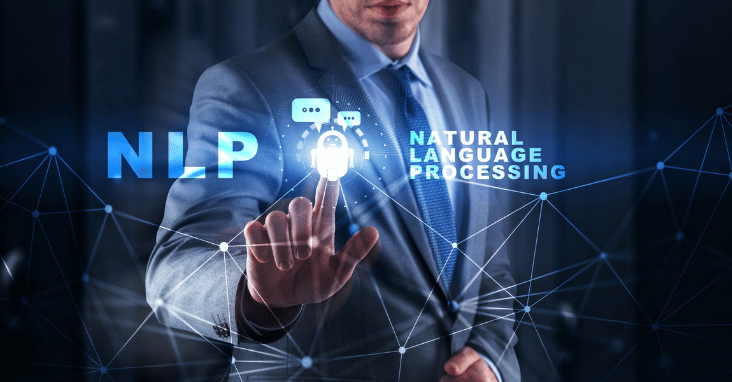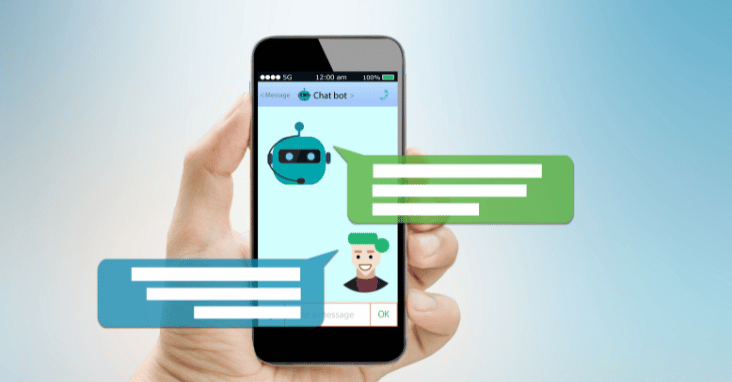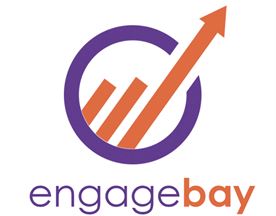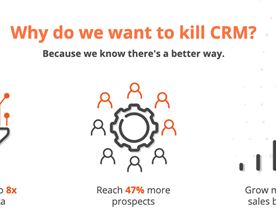What is an AI Powered CRM?
AI-powered CRM uses AI to automate and improve customer management, such as sales, marketing, and customer service. It can analyze customer data and make recommendations. Examples of features include automated lead scoring, personalized marketing campaigns, and chatbots for customer service.
An AI-powered CRM system uses AI techniques such as natural language processing, machine learning, predictive analytics, and chatbots to automate and optimize various processes related to managing a company’s interactions with its customers. These processes include sales forecasting, personalized marketing, and customer service. Using AI, these systems can analyze large amounts of data and make predictions or recommendations to help companies make more informed decisions and improve their overall customer experience.
In this post, we will take a closer look at the different types of AI in CRM, the use cases and advantages of each, the implementation and challenges, the future of AI-powered CRM, and how it could revolutionize how businesses interact with their customers.
Key Elements of AI-Powered CRM
There are 5 key areas of CRM software that are going to benefit the most from the introduction of artificial intelligence.
Natural Language Processing (NLP)
Machine Learning (ML)
Predictive analytics
Chatbots
Virtual and Augmented Reality
Next, we are going to look at each of these areas in more detail and examine specific use cases where their introduction will make a significant impact on sales team performance and overall customer experience.

Natural Language Processing (NLP)
Natural Language Processing (NLP) is a subfield of Artificial Intelligence (AI) that deals with the interaction between computers and human languages. NLP can benefit a CRM system in several ways:
Chatbots: NLP can be used to create chatbots that can understand and respond to customer inquiries in natural language. This can improve customer service and support by providing customers with quick and accurate responses to their questions 24/7.
Voice recognition: NLP can enable voice recognition in a CRM system, allowing customers to interact with the system using their voice. This can improve accessibility and convenience for customers who prefer to speak instead of typing.
Email and Social Media Monitoring: NLP can automatically classify, categorize, and respond to customer inquiries received via email or social media. This can improve customer service and support by providing customers with quick and accurate responses to their questions.
Sentiment Analysis: NLP can be used to analyze customer feedback, comments, and reviews to determine the overall sentiment (positive, negative, neutral) of the customer towards the company. This can help businesses identify areas where they need to improve.
Automated Data Entry: NLP can automatically extract relevant information from customer emails, chat logs, and other unstructured data sources and enter them into the CRM system. This can save time and reduce errors associated with manual data entry.
Predictive analysis: NLP can analyze customer interactions and provide insights and predictions that can help businesses make more informed decisions.
NLP significantly improves a CRM system’s efficiency, accuracy, and effectiveness by enabling it to understand and respond to customer inquiries in natural language, enhancing accessibility and convenience, and providing valuable insights and predictions.

Machine Learning (ML)
Machine Learning (ML) is a subset of Artificial Intelligence (AI) that allows computers to learn and improve from data without being explicitly programmed. ML can benefit CRM software in several ways:
Sales forecasting: ML can analyze customer data, such as demographics, purchasing history, and website activity, to make accurate sales predictions. This can help businesses plan for future demand and improve their inventory management.
Personalized marketing: ML can analyze customer behavior and preferences to create targeted marketing campaigns. This can improve the effectiveness of marketing efforts and increase the likelihood of customers making a purchase.
Fraud detection: ML can be used to detect unusual patterns in customer behavior, such as multiple purchases from the same IP address or sudden changes in buying habits. This can help businesses identify and prevent fraudulent activity.
Predictive analytics: ML can be used to analyze customer data and identify patterns that can indicate future customer behavior. This can help businesses make more informed decisions, such as identifying at-risk customers and predicting which customers are most likely to make a purchase.
Customer segmentation: ML can segment customers based on their demographics, purchasing history, and other characteristics. This can help businesses create more personalized and effective marketing campaigns.
Lead Scoring: ML can be used to analyze large amounts of data to identify which leads are most likely to convert into paying customers. This can help businesses prioritize their sales efforts and increase their return on investment.
Machine Learning significantly improves a CRM system by providing valuable insights, predictions, and recommendations, which can help businesses improve their sales and marketing efforts, increase customer satisfaction and loyalty, and ultimately drive revenue growth.

Predictive Analytics
Predictive analytics is a subset of Artificial Intelligence (AI) that uses statistical techniques and machine learning algorithms to analyze historical data and predict future events. Predictive analytics can improve CRM software in several ways:
Sales forecasting: Predictive analytics analyzes customer data, such as demographics, purchasing history, and website activity, to make accurate sales predictions. This can help businesses plan for future demand and improve their inventory management.
Churn prediction: Predictive analytics can analyze customer data to identify patterns and factors that may indicate a high likelihood of a customer canceling their subscription or ending their business relationship. This can help businesses proactively reach out to at-risk customers and take steps to retain them.
Next-best action: Predictive analytics can analyze customer data and identify the next best step for a sales representative to take with a specific customer. This can help businesses increase the efficiency and effectiveness of their sales efforts.
Lead Scoring: Predictive analytics can analyze large amounts of data to identify which leads are most likely to convert into paying customers. This can help businesses prioritize their sales efforts and increase their return on investment.
Customer Segmentation: Predictive analytics can segment customers based on their demographics, purchasing history, and other characteristics. This can help businesses create more personalized and effective marketing campaigns.
Predictive maintenance: Predictive analytics can analyze customer data and identify patterns that may indicate a high likelihood of a product or service failure. This can help businesses proactively schedule maintenance and prevent downtime.
Predictive analytics significantly improves sales team performance by providing valuable insights, predictions, and recommendations, which can help businesses improve their sales and marketing efforts and increase customer satisfaction and loyalty.

Chatbots
AI-powered chatbots are computer programs that use natural language processing (NLP) and machine learning (ML) to understand and respond to customer inquiries in a human-like manner. They can benefit a CRM system in several ways:
24/7 customer service: Chatbots can provide customers with quick and accurate responses to their questions and concerns 24/7. This can improve customer satisfaction and loyalty by providing them with the support they need when they need it.
Automation of routine tasks: Chatbots can handle tasks such as answering frequently asked questions, handling customer complaints, and providing personalized support. This can save time and resources for businesses, allowing them to focus on more complex tasks.
Personalization: Chatbots can use customer data, such as demographics and purchasing history, to provide personalized recommendations and offers. This can improve the effectiveness of marketing efforts and increase the likelihood of customers making a purchase.
Cost savings: Chatbots can handle a large volume of customer inquiries, saving businesses money on customer support staff and call center expenses.
Lead generation: Chatbots can be integrated with a company’s website or social media platforms to engage with visitors and qualify leads in real time.
Data collection: Chatbots can also collect valuable data from customer interactions, such as their preferences and feedback, which can improve the overall customer experience and make data-driven decisions.
AI-powered chatbots can significantly improve results from CRM systems by providing 24/7 customer service, automating routine tasks, personalizing the customer experience, reducing costs, generating leads, and collecting valuable data.

Virtual and Augmented Reality
AI-powered virtual reality (VR) and augmented reality (AR) can significantly benefit a CRM system by providing a more personalized and engaging customer experience.
Personalized customer experiences: AI-powered VR and AR can create personalized, immersive customer experiences, such as virtual product demonstrations and augmented reality product configurators. This can help customers to better understand and engage with products and services, leading to increased satisfaction and loyalty.
Improved customer service: VR and AR can create virtual customer service environments where customers can interact with customer service representatives in real-time and receive assistance with their inquiries and problems.
Increased engagement: VR and AR can be used to create engaging and interactive marketing campaigns, which can help to increase brand awareness and customer engagement.
Better data collection: VR and AR can collect data on customer behavior and preferences, improving the CRM system’s ability to predict customer behavior and make personalized recommendations.
Cost savings: VR and AR can be used to reduce the cost of customer service and marketing by allowing companies to interact with customers remotely without needing physical locations.
AI-powered VR and AR can provide a more personalized, immersive, and efficient customer experience while also helping to improve the overall performance and effectiveness of the CRM system.

AI-Powered CRM: Implementation and Challenges
Implementing an AI-powered CRM system involves several steps and challenges.
Data quality and consistency: Ensuring the data used to train the models is accurate and consistent can be difficult.
Privacy and security concerns: Ensuring customer data is kept private and secure is a primary concern when implementing an AI-powered CRM system.
Integration with existing systems: Integrating the AI-powered CRM system with existing systems can be complex and time-consuming.
Explainability and transparency: AI models can be difficult to understand and interpret, making it challenging to explain their decisions and recommendations to customers and other stakeholders.
Cost: Developing and implementing an AI-powered CRM system can be expensive and require significant investment in technology and resources.
Future of AI-Powered CRM
The future AI-powered tools will focus on personalization and automation.
One of the critical developments shaping the future of AI-powered CRM is the greater use of natural language processing (NLP) and conversational interfaces. This will make the CRM system more user-friendly by enabling customers to interact with the system using natural language, making the interactions more efficient.
Additionally, virtual and augmented reality will play a more significant role in the future of AI-powered CRM, allowing customers to have more immersive and personalized experiences with the CRM system.
In an AI-powered future, CRM systems will be more advanced in predictive analytics and machine learning, making them more accurate in predicting customer behavior and preferences and providing more personalized recommendations and offers. Automating repetitive and time-consuming tasks will also be a focus for the future of AI-powered CRM, allowing customer service representatives to focus on more complex and value-adding tasks. There will also be a greater emphasis on transparency and explainability as AI-powered CRM systems become more sophisticated to ensure that customers and other stakeholders understand the decisions and recommendations made by the system.
In summary, the future of AI-powered CRM will be more seamless and personalized, focusing on automation, personalization, and advanced analytics.















